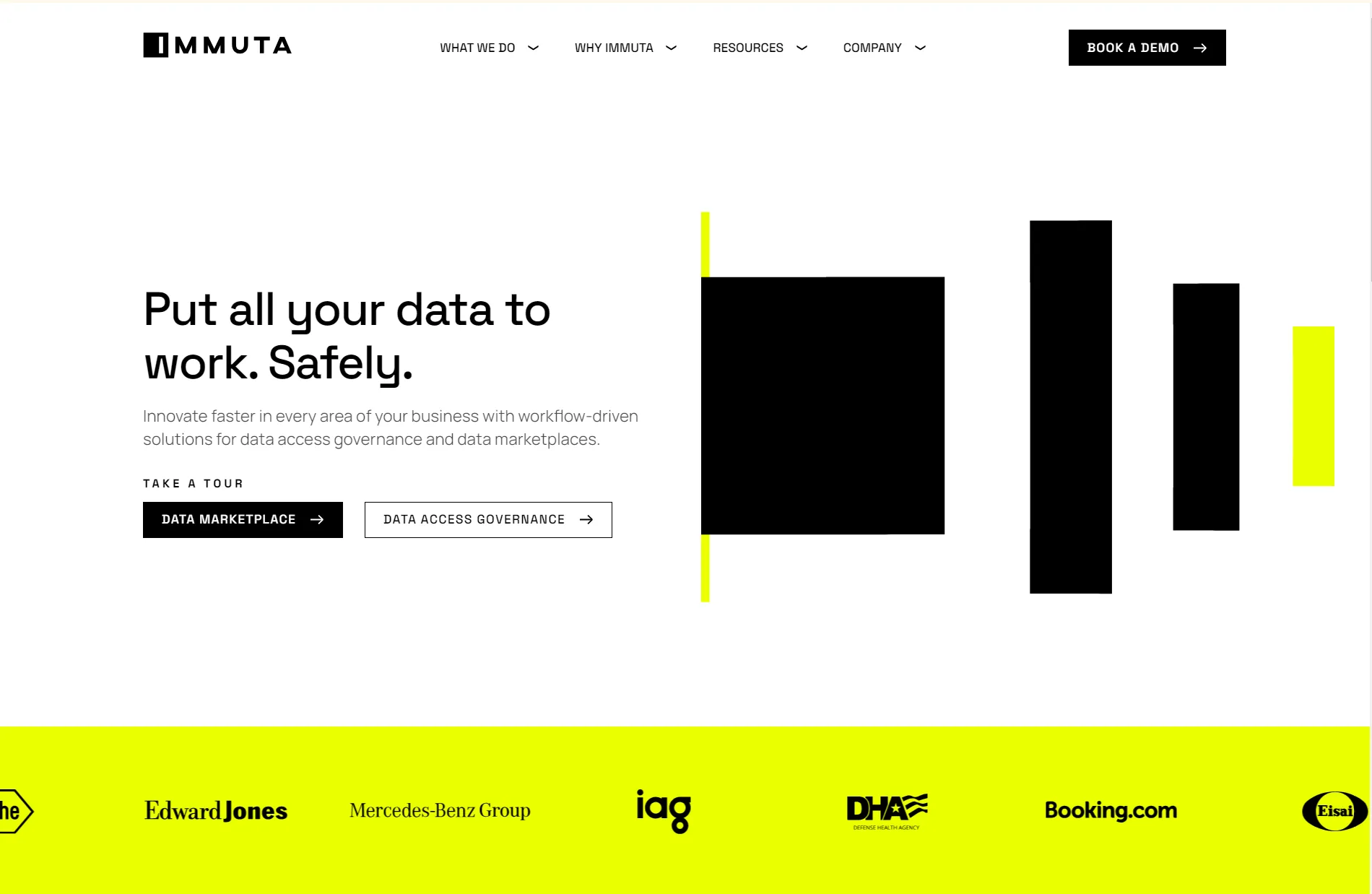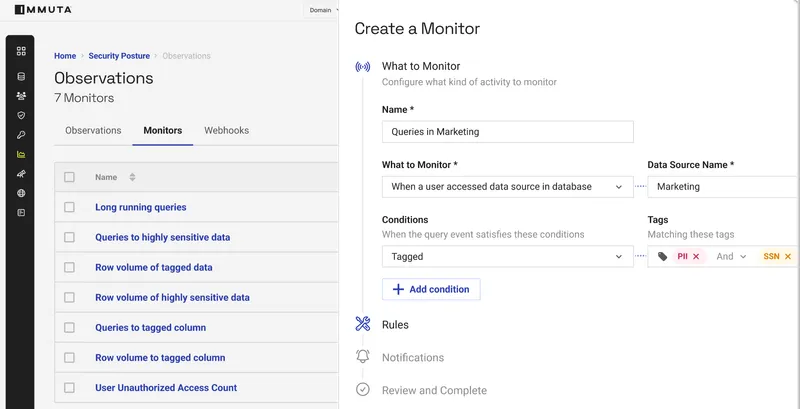Tool Overview:
Immuta
Overview
Based: United States
Contact: https://www.immuta.com/contact/

About Immuta
Immuta is a data security and governance platform designed for modern cloud data stacks. Founded in 2015 and headquartered in Boston, the platform provides centralized access control and data privacy capabilities across multiple cloud platforms and data sources. The platform emerged from work with the U.S. Intelligence Community to solve complex data governance challenges.
What does Immuta do?
The platform's core functionality centers on automating data access control and security policies across an organization's data infrastructure. It integrates with major cloud data platforms like Snowflake, Databricks, and Amazon Redshift to enable fine-grained access controls without impacting query performance. Key capabilities include sensitive data discovery, attribute-based access control (ABAC), data activity monitoring, and automated policy enforcement.
Through its native integrations with cloud platforms, Immuta allows organizations to define data access and security policies centrally while enforcing them consistently across different data sources. The platform uses metadata-driven policy authoring to create scalable rules that automatically adapt based on user attributes, data sensitivity, and access context. This helps reduce the manual effort typically required to manage complex role-based access control systems.
What makes Immuta different?
Immuta's emphasises an attribute-based access control rather than traditional role-based methods. Research indicates this can reduce policy maintenance burden significantly compared to role-based systems. The platform also provides advanced data protection capabilities like k-anonymization, differential privacy, and dynamic data masking that can be applied automatically based on policy rules.
The platform includes built-in monitoring and auditing capabilities to track data access patterns and policy enforcement. This helps organizations demonstrate compliance with regulations like GDPR, CCPA, and HIPAA. Immuta's architecture allows it to enforce policies at both the storage and compute layers, providing multiple control points for sensitive data protection.
Use cases and industries
Immuta serves organizations across multiple sectors including financial services, healthcare, government, and technology. Common use cases include securing sensitive data in cloud migrations, protecting regulated data for analytics, and enabling secure data sharing across organizational boundaries. For example, healthcare organizations use it to de-identify patient data for research while ensuring HIPAA compliance, while financial institutions leverage it to control access to customer financial data across analytics platforms.
The platform is particularly relevant for organizations dealing with complex regulatory requirements or handling large volumes of sensitive data across multiple cloud platforms. It helps enable self-service analytics while maintaining appropriate data protection controls. Major clients include Roche Diagnostics, which used the platform to create over 200 new data products, and Mercedes-Benz Group, which leverages it for their internal data marketplace initiative.
Pricing
Pricing information not available.
Product Screenshots
 Screenshot from Immuta product demo. It shows an activity monitor where an employee queries sensitive PII (Personally identifiable information) in the database.
Screenshot from Immuta product demo. It shows an activity monitor where an employee queries sensitive PII (Personally identifiable information) in the database.